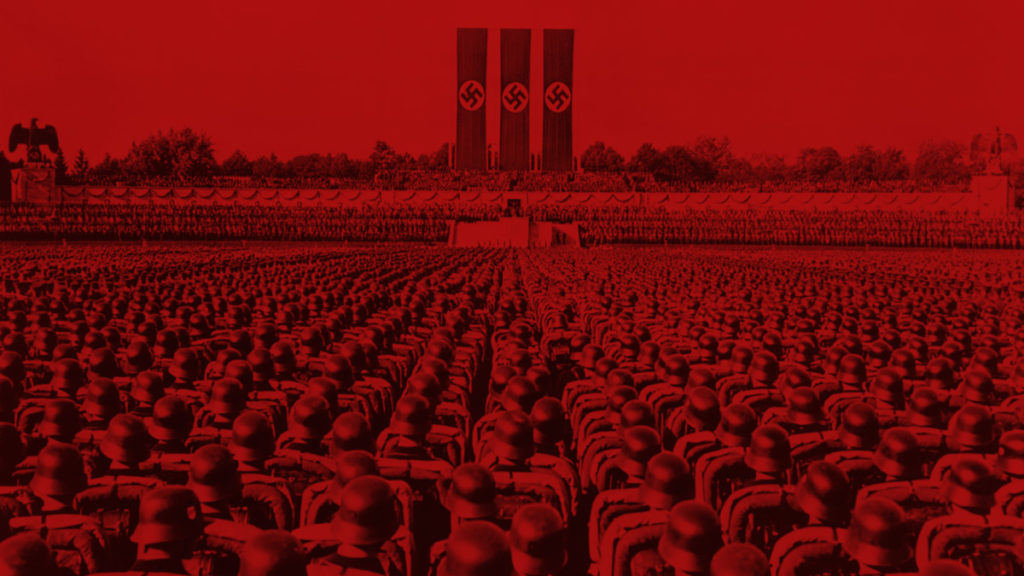Here at the start of the Trump Era, in the wake of the Women’s March on Washington, and just before the start of Hulu’s television adaptation of Margaret Atwood’s The Handmaid’s Tale, I see and hear the terms misogyny, fascism, patriarchy, and Nazism linked frequently.
The first great fiction author who connected these concepts was well ahead of Margaret Atwood by almost fifty years. Like protestors and activists today, she was concerned about how these forces affected people — especially women — in her here and now. And in her day, Nazis were … well, Nazis.
Her name was Katharine Burdekin (1896–1963). A speculative fiction author from the UK, Burdekin published many of her works under her own name or her nickname of Kay Burdekin. She chose to publish her most politically daring novels, however, under the name of Murray Constantine. Some speculate that she adopted this pseudonym to protect herself and her loved ones from political reprisals for her outspoken criticisms of fascism; at any rate, the pseudonym remained such a well-kept secret that Murray Constantine’s true identity wasn’t settled until the 1980s (thanks to the work of scholar Daphne Patai).
From our perspective in 2017, Burdekin’s fiction appears far ahead of its time, from her treatment of transgenderism to her critique of what she called mere “reversals of privilege” (as opposed to the ending of privilege, which she favored) in politics.
Life in the Nazi Future
Burdekin’s most important novel is, arguably, Swastika Night. Published in 1937 — two years before the German invasion of Poland and eight years before Hitler’s suicide and the end of World War II — Swastika Night is one of the first works of fiction to address the question, “What if the Nazis won the war?”
Swastika Night’s answer? The future is not pretty.
Here are some of the features of the future Nazi-dominated Europe that Burdekin imagines:
- Women are treated as subhuman animals, penned and used by men as breeding stock.
- Jews are exterminated via genocide and Christians are persecuted.
- Almost all books are destroyed, so no history or science could challenge the new orthodoxy.
- “Knights” preach and pass down a civic religion based upon Hitler worship and a neo-medieval cult of masculinity.
Burdekin’s feminist critique of fascism, as well as her analysis of the relationship between war, sexism, and power, are every bit as relevant today as when she wrote. So, too, are her warnings about how ignorance enables tyranny.
If I haven’t tempted you to give Swastika Night a try, perhaps Darragh McManus from the Guardian will. McManus notes,
Though a huge leap of imagination, Swastika Night posits a terrifyingly coherent and plausible alternative history. And considering when it was published, and how little of what we know of the Nazi regime today was then understood, the novel is eerily prophetic and perceptive about the nature of Nazism: its violence and mindlessness; its irrationality and superstition; its emotional immaturity and cod-mysticism; the mundane, stifling horror; the way it ultimately dehumanises and destroys everyone, even the powerful; most importantly, the inextricable link between misogyny, patriarchy and fascism. A ferocious but subtle and brilliantly controlled “j’accuse” against misogyny, Swastika Night is one of the few fictions to emphasise this key element of the Nazis: man, the world-conquering hero; woman, know thy place.
Want more to explore? Check out the resources below.
“On Being Human: Swastika Night by Katharine Burdekin” at CCLaP: Chicago Center for Literature and Photography
“Katharine Burdekin” at The Encyclopedia of Science Fiction



